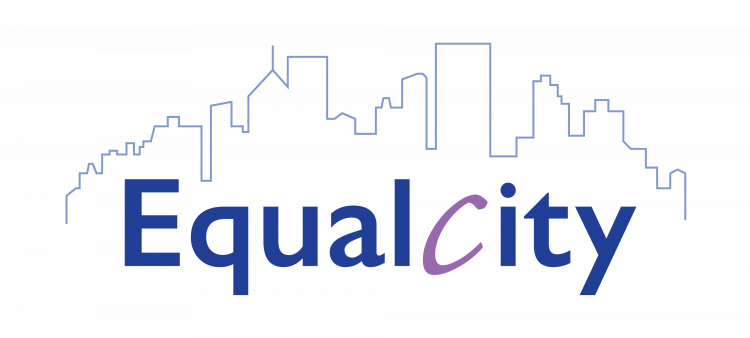In the picture

COVID-19 and the impact on migrants
published on 10 June 2020
The COVID-19 pandemic affects everyone, everywhere, and at the same time amplifies and deepens existing inequalities. Migrants, especially when undocumented, are particularly vulnerable to the impact of the pandemic. They may face obstacles in accessing health care and other support services, are subject to increased stigmatization and discrimination, and risk income loss due to less favorable employment conditions. Migrant workers are at the frontline of the response to COVID-19, whilst at the same time enjoying less favorable working conditions which may also have a direct impact on their health. For migrants relying on sex work, the crisis and consequent social distancing has deprived people from income and protection, facing even more precarious financial and housing situations. The organization UTSOPI, a collective of sex workers in Belgium, has developed a guide for sex workers during the COVID crisis and Alias, an association for msm and trans* sex workers in Brussels, has produced a video regarding the safety of sex workers working online.
For migrants in reception or detention or newly arrived persons in need of international protection, conditions are also particularly challenging. They might have no certainty on their procedure, face suspensions of counseling and group activities, whilst not being able to self-isolate.
As shown many times in the last weeks, marginalized communities, such as the LGBTQI+ community, are hit particularly hard by the COVID-19 crisis. These uncertain times come with a rise in discrimination and stigmatization blaming LGBTQI+ people and people being perceived as migrants for COVID-19.
The current crisis impacts the physical, financial and emotional security of our target audience and will probably force a great number of LGBTQI+ people to migrate in the foreseeable future. In the meantime, with borders closing abruptly, many migrants find themselves stranded in transit. Furthermore, unlike most migrants, LGBTQI+ migrants flee not only a legal/political context, but often also communities. This means that they tend to be even more isolated than others upon arrival in Europe as they usually are not able to seek the support of the local diaspora and other migrants. The absence of a supportive community (be it perceived or assessed) puts people at higher risk of extreme precarity as well as mental health conditions.
These risks are also exacerbated in a time of social isolation, especially for LGBTQI+ migrants who reside in reception centers where it is impossible to practice social distancing and get privacy (for video chats for example) while being forced to maintain social distance with the outside world (where most LGBTQI+ residents may find solace). These asylum seekers also face even higher-than-usual levels of stress and anxiety regarding their application for international protection. In the context of the current pandemic, interviews and court appointments are suspended or delayed, and access to information, lawyers, and support groups is becoming very scarce when existing at all.
Levels of stress and anxiety are also extremely high for LGBTQI+ people with a migrant background who have to stay with unsupportive relatives, who may not accept them and might therefore be forced to conceal their sexual orientation or gender identity not to face diverse forms of violence. The inability to connect with positive and supportive influences may have serious (health) implications.
It is known that overall, in case of health issues, outcomes are generally worse within the LGBTQI+ population and within migrant communities because of persisting stigma and discrimination leading to disparities in access, quality and availability of healthcare. Prejudice held by medical professionals can have disastrous consequences in times like these, especially during piques of contamination and overloaded medical facilities. It is important to highlight the fact that our target audience counts a considerable amount of people living with HIV. The delay or lack of access to their treatment, a (in)direct consequence of COVID-19 measures, can lead to compromised immunity and heightened vulnerability to the coronavirus. For a lot of people, getting access to testing and treatments is becoming more difficult under the new circumstances. For more information, please read the guide on “Coronavirus and HIV” by the Belgian organization EX-AEQUO.
Another example is trans* and intersex people who need specific treatments and specialists, as they can encounter difficulties accessing them during the lockdown, be it for administrative, financial or geographical reasons. On top of that, procedures deemed “non-urgent”, such as transition-related medical care, are mostly postponed or canceled. This can have serious consequences on the physical and psychological health of those needing it, including anxiety and depression, sometimes leading to suicide.
Recent observations confirm that, in the current conditions, people are more susceptible to develop new mental health issues and to see the existing ones worsen. This situation proves particularly detrimental to people with trauma related to medical procedures, situations of isolation, or imprisonment. LGBTQI+ people are still often subjected without consent to invasive physical and psychiatric medical procedures, including corrective surgeries on intersex individuals and conversion therapies. As ILGA Europe states in its COVID-19 briefing document: “past experience of discrimination, stigma, gatekeeping, misgendering, and non-consented procedures can deter LGBTI people from seeking medical care, leading to later entry into medical systems or no entry at all”.
Lastly, there can be added impacts on LGBTQI+ people from a migrant background due to the intensified police presence put in place to enforce the lockdown measures. For a start, social distancing rules are drawn around the concepts of household and family which are usually understood in a heteronormative way. Same-gender partnerships tend to be dismissed especially when combined with racial bias. Furthermore, more frequent identity controls lead to greater risks of verbalization, arrests, and harassment for undocumented people and trans* individuals whose documents may not reflect their correct current name, gender, and/or appearance.
